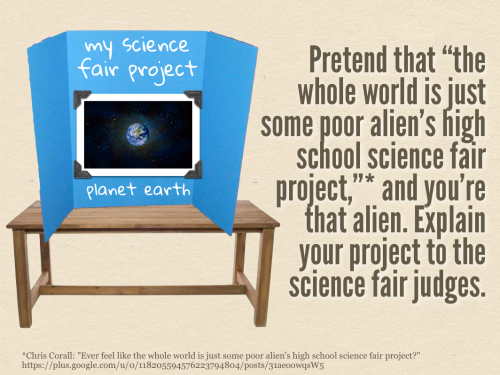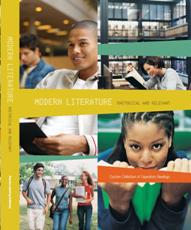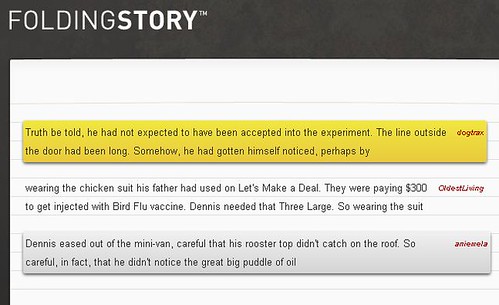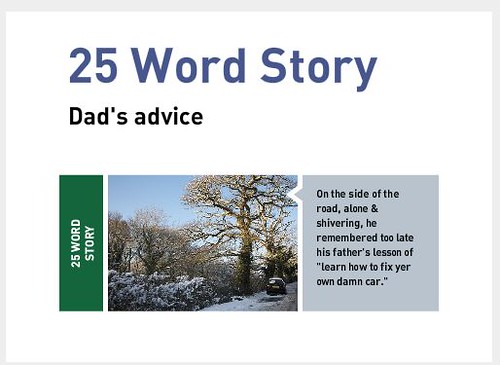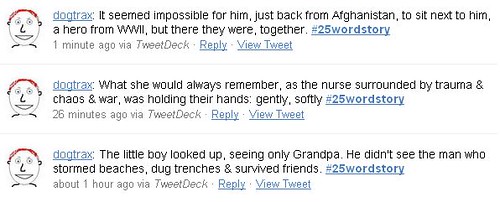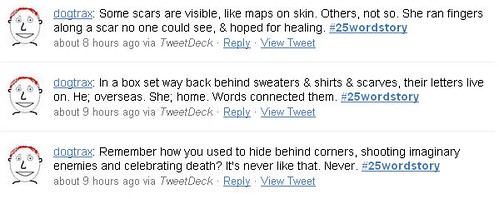I have been trying to work for more content-area related connections to our mostly-daily writing prompts in class as part of our shift into Common Core writing, and of course, as they write, so do I (and so should you). One resource that has been making my life easier is the blog simply called Writing Prompts but which is completely made up of visual prompts. Many of them connect nicely with science, math and social studies. And most are very thought-provoking. It’s a wonderful site.
On Friday, we used this one about earth as a science experiment, and it tied in with their recent work in science around the Scientific Method. We talked about what the alien might hypothesize, and then what kind of data collection it might do, and what conclusions it would discover. Then, they had a choice: they could create a fake science experiment write-up, a dialogue skit between the alien and a teacher, or a short story. I wrote this short story with them, using humor to tell my story.
“I can’t stand these planetary science experiments,” I grumbled, pushing another nebula galaxy towards my best friend, Zingledoop. “It’s so … meaningless. Like, when will we ever need to know how to make a planet?”
”I know. And it always ends in disaster,” Zingledoop replied. He took the galaxy and popped into his nutrient chute. “Remember the last one?”
Of course, I did. I still have a vision of that flattened planet, all smooshed because Zingledoop had sat on it accidentally. We’d thrown that planet away into the intergalactic trash bin, just like the others.
“Maybe this one will be different,” I said hopefully. “What do the instructions say?”
Zingledoop pulled the instructions out of his left nostril and looked it over. “Create a planet with life forms that are destined to destroy the planet. Come up with a hypothesis, data collection and be prepared to write a conclusion of your experiment.”
“Great,” I said. “We’re just going to let them destroy it?”
“Unless we do it first,” Zingledoop said, and we both laughed.
We quickly got down to work. In some ways, we were old pros at this. We’d created our fair share of planets and done plenty of intergalactic science experiments. With this planet, we decided that we would see what happens if we incrementally increased the planet temperatures. With ice caps and large oceans, the place would soon be flooded out. Or at least, that’s what we predicted. We’d be speeding up time to see if our prediction came true or not.
It was sort of boring. We’d “done” planets. What we wanted were Universes, but our teacher kept telling us “first things first.” So, here we were, creating this planet called …
“What’s this place to be called?” I asked.
Zingledoop looked at the instructions. “Earth,” he answered.
”Earth? That’s a pretty lame name.”
“Yeah. But on the bright side of things, it won’t be around for long.”
We both laughed again.
Peace (in the experiment),
Kevin
